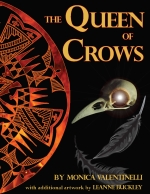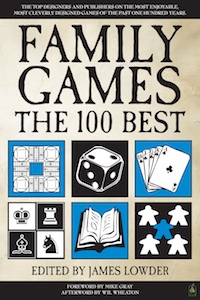In a fit of…well…angst, last week I had made a retort to “yet another” discussion about e-books about how they weren’t liquid gold. Well, you know the part about how sarcasm doesn’t translate well online? Yeah, the end result of a snarky comment is this rant. Which, no doubt, may either cause you to weep, shout “Amen!” or have you shaking your heads in disagreement. Fortunately, I am not the one to blame for said rant. To find out the mystery culprit, you’ll have to read to the bottom of the post.
On with the rant.
Before I get into why e-books are not liquid gold, let me say that it is nigh impossible to cover all of the myths surrounding e-books as a product in this post. I have heard (and read) everything from how e-books are cheaper to produce and/or sell than traditional print editions, how authors are greedy and should take less money so the price goes down, how they should be free to distribute because they don’t cost anything to make, etc. and so forth.
Do you know what are you paying for when you purchase an e-book? You are paying for your desired content through a specific means of delivery – in this case, digital. Books are priced differently because all books do not cost the same to produce, sell or create. Of course, you might know that all authors are not paid the same, but did you know that e-books don’t cost the same to produce either? Same goes for e-books and audiobooks. Audiobooks are priced differently because you’re paying for the story and the performance of it in an audio format. E-books are priced differently because you’re paying for obtaining the story in a digital format that is compatible with your intended device. Every retailer that offers you the ability to purchase or download an e-book also gets their cut, and that’s part of the price as well.
What pisses me off the most about e-books is that all of a sudden people think that they’re new and will somehow instantaneously change the entire publishing industry. They are, most certainly, not “new.” As soon as people could, e-books were produced via word processing software like Microsoft Word. Then, when PDFs first came out, people were using those to produce e-books that you could read on your laptop or your computer. The company OneBookShelf has been around for years, providing people with games, stories and comics in a digital format through DriveThruComics, DriveThruRPG, DriveThruHorror and other sites. OneBookShelf is interesting, because in many ways, the hobby games industry is way ahead of the curve for digital publishing, because they’ve gone through their fair share of changes before the rest of the industry has had a chance to. Keep in mind, that hobby games can be more expensive to produce than a novel, because of the time and resources involved. Advances in digital publishing have helped facilitate the access and availability of digital hobby games for gamers so OneBookShelf been able to thrive. Why? Because the demand was there and the readers were also receptive to it. The same, truly, can be said of e-books now. Regardless of what the publishers are doing, the popularity of e-books will only exist as long as the demand is there. Even so, it will take a long time before e-books replace print books because the market is not this giant, single-celled organism that moves at one pace. That “market” is comprised of individuals and their unique buying habits; not every person that’s out there will automatically “only” buy e-books without picking up a print copy. We’re not there yet.
Why then, are people freaking out about e-books by saying that they’re easy money or that they threaten to topple the industry? Well, again, for the first time we are not only seeing a change happen, we are able to discuss those changes as they happen. Right now, that short-term mentality is reigning supreme through topical articles and through a bit of a rebellious attitude toward the publishing industry, which is often viewed as this impenetrable monolith. Personally? I don’t care about the short-term. I care about the long-term. Conventional wisdom tells me that it is way too early to ascertain how e-books will affect the industry, because the market — not the publishers or people’s personal opinions — will decide how and when and where things will shake out. I’ve weighed in on e-books before and have also shown you how to calculate the cost of an e-book based on my experiences as well. However, to calm your fears, I’d like to point out another little piece of technology and how it revolutionized the way that books were produced and distributed. It’s called “the printing press.” Do you honestly think that when the printing press was invented that the effect was instantaneously? If you mean by twenty or thirty years, then yes.
The reason why e-books are not liquid gold, is because readers are not performing a bait-and-switch with their formats and many expect the e-books to be free. “Free” is not truly “free,” especially when it comes to books that take a long time to write, edit and produce in their final form. It’s so easy to point to a digital file and say “Hey, that’s easy and cost-effective to produce. Just throw it up on a site and charge ninety-nine cents and watch the profits roll right in. No physical materials required means they should be next to nothing, right?” Only, very few conversations about e-books I’ve read discuss the value of that product: the story.
If you were willing to pay in upwards of twenty-five for a hardcover edition of your favorite novel, what would you pay for that same story in a digital format? What would you pay to read a new story by an author you’ve never read before? If your answer is “zero,” perhaps you might want to consider why that might be and what would cause you to pay money for an e-book. After all, you are an important part of the market that will decide the shape of things to come.
Anyway, the culprit of said rant is none other than author Tobias Buckell who’s written books like “Halo: The Cole Protocol” and “Crystal Rain.” Good books, so go read them. Or, if you’re looking for a different e-book experience, check out “The Queen of Crows” which was written by yours truly.
Now that the shameless promotions are over with, I want to hear what you think. What do you have to say on the subject? Any coherent thoughts out there?


